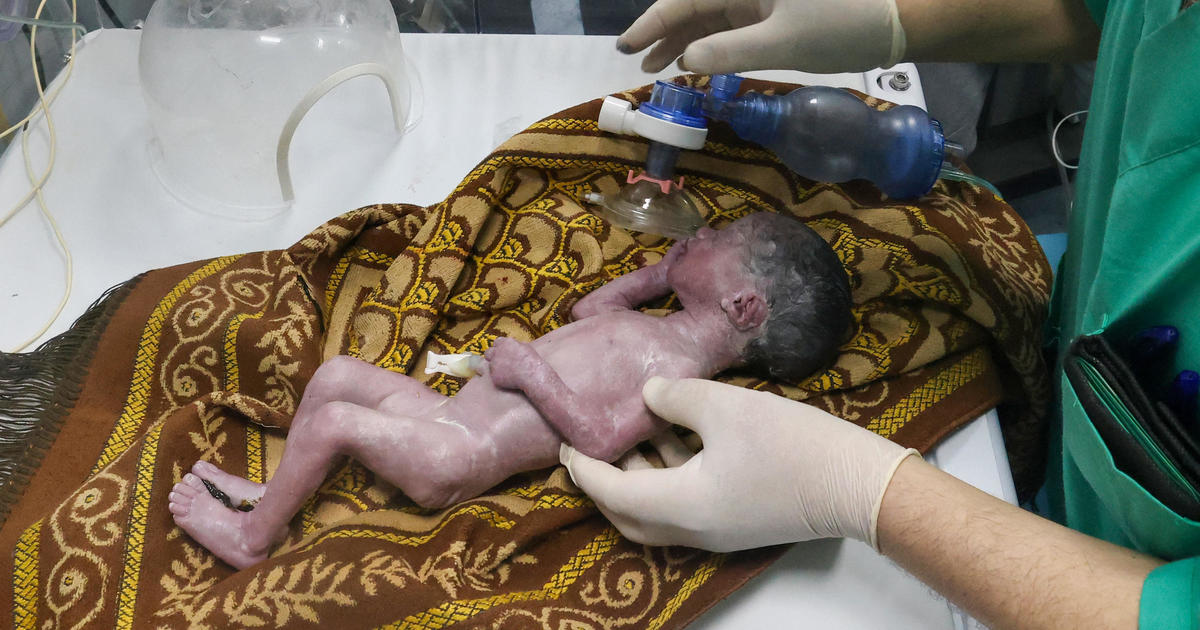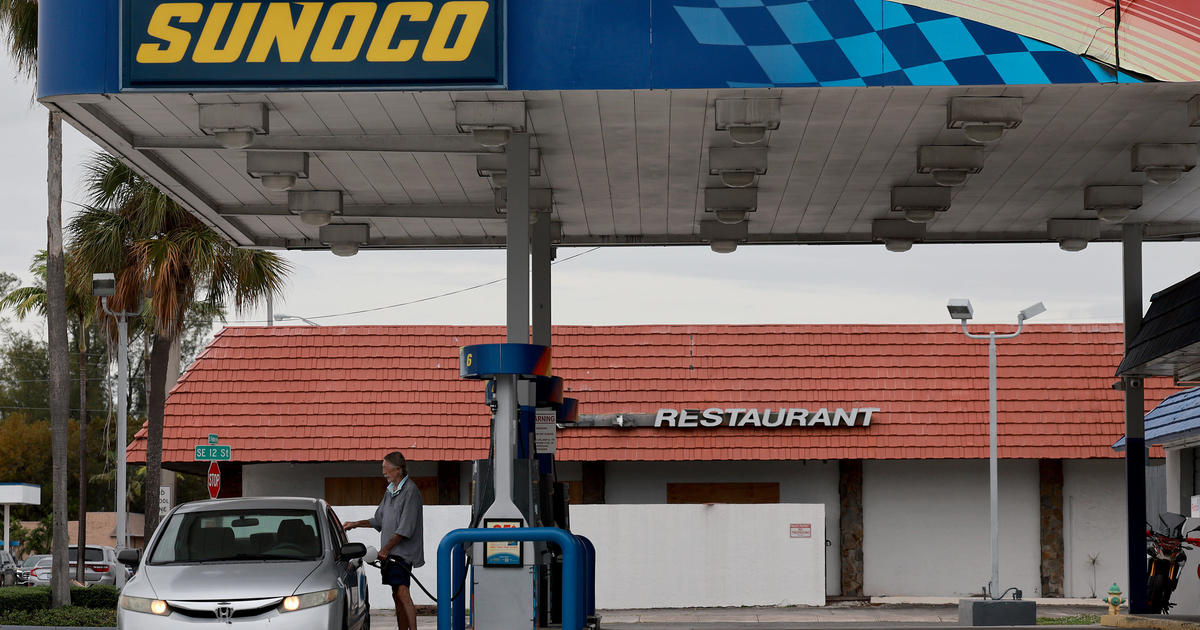Today's 2014 Senate races, tomorrow's 2016 presidential battlegrounds
This article originally appeared on RealClearPolitics.
The short list of pivotal states in the race for control of the U.S. Senate invariably includes Arkansas, Louisiana, and Alaska. In this high-stakes election year, they are driving many of the key themes in play nationally: the power of family dynasties, President Obama's unpopularity in red states, and Democratic incumbents hoping to survive as once familiar ground shifts beneath them.
Indeed, all three will be closely watched, especially since West Virginia, Montana, and South Dakota appear to be likely pickups for the GOP. Together, those six states will test the durability of the Democratic Party in areas that have grown hostile to it at the local level.
But after Election Day, they may well fall off the radar as the focus turns to the open race for the White House in 2016. While competitive in off-year elections, all six states are reliably Republican in presidential years.
Instead, Senate contests in North Carolina, Iowa, and Colorado could double this year as both congressional battlegrounds and presidential race crystal balls, providing long-term clues for both parties. Obama won these three states in 2008, and Iowa and Colorado in 2012. Now, however, the prospects for his party in all of them are challenging. The president figures to be a weight on Democratic candidates in those Senate races (though, because he has competed here himself, his campaign infrastructure could be a help).
Republicans need to gain a net of six seats to take control of the upper chamber. That may be a tall order, considering that they have to hold on to seats in Georgia and Kentucky, but the climate is favorable and several routes to their goal are open.
As is the case in other contests, the Democratic candidates in North Carolina, Iowa, and Colorado are running local races infused with national party themes. They are doing their best to separate themselves from the president while also addressing issues he has championed to motivate their bases.
With that in mind, here is a look at where these races stand, three months out from Election Day:
North Carolina
The Senate race in the Tar Heel State could hinge on what carries more negative weight: President Obama and national Democrats or the GOP governor and legislature.
Democrat Kay Hagan began this cycle as one of the most vulnerable incumbents. The freshman senator came to office as part of the Obama wave in 2008 and, like many of her colleagues elected that year, her re-election prospects have been made more difficult by him.
Hagan has outraised her GOP opponent, Thom Tillis, and has over $8 million in cash compared to his $1.5 million. But she has been a top target for Republican spending by outside groups. For example, Americans for Prosperity, a pro-GOP super PAC backed by Charles and David Koch, is spending more than $8 million against her. Republicans hope to pin her to Obama at every turn, particularly on the health care law, government spending and gun laws.
Polls show a close race between the two candidates, and give Hagan a slight edge: She's up 1.8 points in the RealClearPolitics average. A possible reason: Just as Obama is unpopular in the state, so too is the state legislature.
Republicans made big gains in North Carolina in 2012. Not only did Mitt Romney win there after it went for Obama four years earlier, but the party also gained control of the governor's mansion and the legislature for the first time in several decades. Since then, state lawmakers have passed several controversial measures involving voting rights, guns, and abortion.
Tillis (pictured) overcame a Tea Party challenge to win his party's nomination, and has been considered an electable GOP candidate. But as state House speaker, he has been at the center of these issues, and Democrats have used them to paint him as extreme.
Tillis' job has also kept him from making much progress on the campaign trail. For a month, the legislature has been in an extended session over the budget, specifically debating whether to increase teacher pay and expand Medicaid. (On Tuesday, Tillis and the Senate president announced a compromise to increase teacher salaries.)
The race is likely to remain close in the final months, and Republicans see opportunities for Tillis to make gains after the legislative session wraps up and voters are paying more attention.
Hagan and Democratic groups are running attack ads to capitalize on Gov. Pat McCrory's and the legislature's poor grades. However, the state Democratic Party has been going through its own turmoil, which could affect the next presidential contest more than the current Senate race.
In North Carolina, a Hagan loss could signal trouble ahead for Democrats hoping to compete there in 2016. With its quickly changing demographics, this Southern state has been moving more toward the makeup of Virginia than that of Arkansas or Alaska. That shifting landscape helped Democrats to victory in 2008. But after the party held its national convention in Charlotte and heavily targeted the state, Obama still lost North Carolina in 2012, albeit by a slim margin.
Turnout models vary from midterm to presidential years. Some Democrats argue that the perception of the state legislature as overreaching and ideologically extreme will carry over into the presidential race and have more of an impact than the Hagan-Tillis outcome does.
In addition, "Obama won't be on the ballot in 2016, so the nature of the race will be very different," said Marc Farinella, who managed Obama's 2008 campaign in North Carolina. "In 2016 Democrats get a bit of a fresh start with a new candidate."
The outcome of the Senate race, though, will give at least a temporary assessment of which way the winds are blowing there in the lead-up to the presidential race, and whether North Carolina will still be considered a top battleground.
"It's a state not to be neglected by either party," says Tom Eamon, an East Carolina University professor and author of "Making of a Southern Democracy." "Because this year North Carolina is going to surpass Michigan in population."
Iowa
All eyes are on the Hawkeye State this year. While a slew of potential presidential contenders swarms Iowa this summer, the state is also hosting an unexpectedly close U.S. Senate race.
Democrat Bruce Braley has committed some unfortunate gaffes -- notably speaking pejoratively of farmers -- which have helped to put this race on the map. Republicans intend to keep firing at Braley, a progressive congressman from a Democratic district. Most recently, they have attacked him for missing a Veterans Affairs Committee meeting to attend a fundraiser. Americans for Prosperity slammed him on this issue in a new television ad and national Republicans are fervently working to spotlight the story. And in another sign of trouble, Braley shook up his campaign team last week.
Republicans view his opponent, Joni Ernst, a member of the Iowa Army National Guard, as a top recruit this cycle. She's an establishment favorite who also has Tea Party support and won accolades for her first ad that equated castrating hogs with cutting pork in Washington.
Immediately after she won a crowded primary, Democrats moved to paint Ernst as Iowa's Sarah Palin (the former vice presidential candidate has endorsed her) and as too conservative for the state. Her opposition also pounced on previous comments she made about impeaching Obama. On Tuesday, Braley released a television ad hitting Ernst for her opposition to increasing the federal minimum wage. The pro-Democratic Senate Majority PAC is running an ad in the state accusing her of supporting tax breaks for oil companies, part of an effort by Democrats to appeal to farmers in the state.
Senate prognosticators have recently moved this race into tossup territory. The RCP average shows a virtual dead heat, with Ernst leading by 0.8 percentage points. The contest figures to be one of the best pickup opportunities for Republicans.
But it didn't start out that way.
President Obama won Iowa twice. (It's the state that gave him a victorious start in the 2008 primaries.) Democrat Tom Harkin, who helped design the federal health care law, is one of the more liberal members of the U.S. Senate and has held the seat for nearly three decades. But his upcoming retirement made the seat competitive. Braley's missteps and Ernst's gains have made it more so.
Despite Obama's success in the state, his poll numbers have fallen, as they have elsewhere. Republicans are working to tie Braley to the president, specifically on energy and environmental issues. Democrats, meanwhile, are trying to portray Ernst as an extremist who wants to cut Social Security.
Observers on both sides still view Iowa as a purple state. Republican Gov. Terry Branstad is popular and poised to win a record sixth term. But the legislature is split between the parties. So too is its U.S. Senate delegation, with Harkin and conservative Republican Chuck Grassley.
But voters' attention is being pulled in many directions. In addition to the gubernatorial, Senate and House races, Republican and Democratic candidates with White House ambitions are already rolling through the state at a rapid rate, two years before the all-important caucuses.
Colorado
The Centennial State is one of the few remaining purple states in the country, and the next two election cycles will help determine whether it stays that way. Obama won there twice, and Democrats defied the worst political climate in recent history in 2010 when Sen. Michael Bennet kept his seat.
Incumbent Democrat Mark Udall appeared to be in good shape to win re-election this year. The infamous Ken Buck had returned to the GOP scene, and Democrats felt good about keeping Colorado as part of their firewall.
Then Cory Gardner got into the race.
The Republican congressman cleared out the rest of the field. Like Ernst and Tillis, he is a top GOP prospect, revered by the party as a likeable and electable candidate who has already helped Republicans expand its map.
Like Iowa, Colorado has become one of the more surprisingly competitive Senate races this cycle. The RCP average shows a virtual tie, with Udall ahead by one percentage point.
Colorado is ground zero for national campaign themes aimed at turning out the vote. Democrats see it as especially fertile ground to test and succeed with their messaging toward women on abortion and contraception. Female voters helped make the difference in 2010, and so far Udall is leading among this group. The incumbent has been relentlessly attacking Gardner for his past support of a personhood amendment in Colorado that has been rejected by voters. Upon entering the race, Gardner withdrew his support, saying it limited certain forms of contraception.
Despite this messaging and considerable spending, the race will likely remain close until Election Day.
Gardner hopes the president will be a heavy weight on Udall, and is painting the incumbent as too liberal for the state. Despite Obama's electoral successes in Colorado, he is now unpopular there. Udall has avoided appearances with the president in the state, staying in Washington recently instead of attending a fundraiser on his behalf that Obama flew in for.
Some observers say Colorado will stay competitive heading into 2016, no matter the outcome of the Senate race. Michelle Diggles, a senior political analyst at the center-left think tank Third Way who studies moderates and independent voters, points to a recent Quinnipiac University poll that found Rand Paul leading Hillary Clinton in a hypothetical match-up in Colorado. "Colorado is a Mountain West state with some libertarian dynamics but also a growing Hispanic population, liberal enclaves, and is on the front lines of many culture war issues," she said. "Whatever happens, Colorado will remain purple."
Republicans don't have to win Colorado to gain control of the upper chamber, but a competitive race there gives them a buffer in case other states don't pan out as expected -- and a win could help them pad their margin if they do take control.
The GOP also sees the race as key to their hopes of being competitive there when the presidential race rolls around. If Gardner, a top party recruit, can't win in this favorable environment, then some in the party worry that the state will be troublesome in 2016.
"If this election doesn't pan out, I fear for my party and state," former state GOP Chairman Dick Wadhams recently told RCP.



